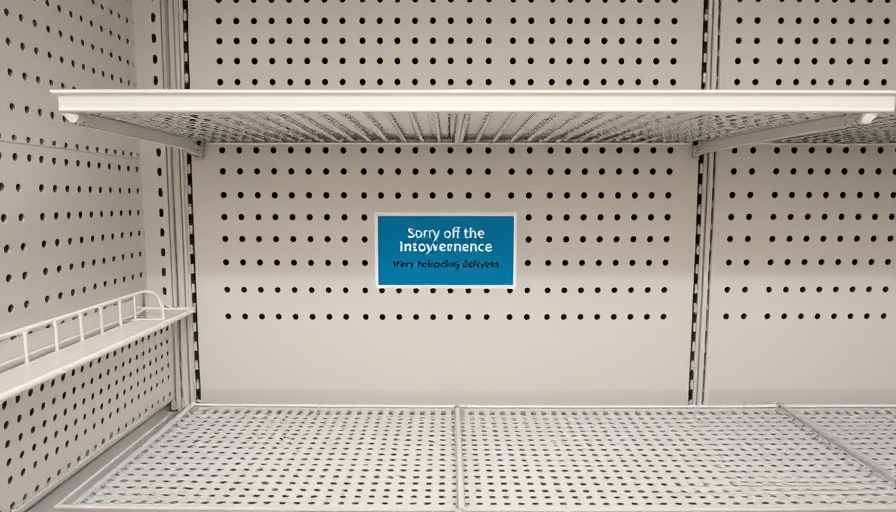
Understanding the Impacts of Trump's Trade War on Supply Chains
The trade war initiated by former President Donald Trump has far-reaching implications, particularly in the domain of consumer goods. As tariffs increase, many companies are reconsidering their supply chain strategies. Notably, numerous shippers are either pausing or outright canceling shipments due to heightened costs and uncertainty in the trade landscape. This scenario raises the looming threat of empty shelves and the potential for increased prices, directly affecting consumers.
Supply Chain Disruptions: What Consumers Can Expect
With shippers scaling back their operations, the immediate impact is felt most acutely in industries reliant on timely deliveries. This pause in shipments is not merely a logistical challenge but a precursor to a broader consumer crisis. Purchasing habits in malls and grocery stores may soon reflect the scarcity of goods, forcing consumers to adapt to a potentially limited selection and higher prices as businesses redirect their focus to maintaining profit margins amid rising costs.
The Economic Ripple Effect: Why It Matters Now
The ramifications of these disruptions extend beyond immediate product shortages. They threaten to create a ripple effect throughout the economy. Businesses that rely on steady inventory levels to meet consumer demand may face increased operational challenges, which could inhibit their growth strategies and investment plans. The resulting inflationary pressures might compel businesses to raise prices, placing a heavier burden on consumers already experiencing budget constraints.
Stockpiling and Consumer Behavior: A New Trend?
Given the uncertainty within the supply chain, consumer behavior is starting to shift. Many individuals may begin to stockpile essential items in anticipation of shortages. This trend not only exacerbates supply challenges but may also lead to further inflation as demand outstrips supply. Businesses must adapt to these changing consumer behavior patterns, which can only evolve based on current market conditions.
What This Means for Bay Area Business Professionals
For business professionals, staying informed about current events in the market is crucial. Adapting strategies in light of evolving trade policies, understanding consumer behavior, and planning for potential supply chain disruptions can help businesses navigate these turbulent times. Engage with each other through networking events, forums, and discussions to exchange insights on best practices for overcoming these challenges.
Call to Action: Stay Engaged and Informed
As we move forward, staying informed is pivotal not just to anticipate the impacts of the trade war but to devise proactive strategies that secure business growth and customer satisfaction. Attend upcoming business networking events and leverage local resources to stay ahead in these ever-changing economic conditions. Let’s work together to ensure the resilience of our Bay Area business ecosystem.
 Add Row
Add Row  Add
Add 



Write A Comment